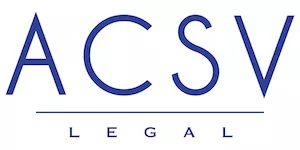- in Asia
- in Asia
Several tax-related draft decrees are expected to be approved shortly. In February 2022, the Ministry of Finance of Vietnam released a draft Decree on tax administration (Draft Decree Tax Administration) to solicit public comments. It amends some articles of Decree 126/2020 guiding the Law on Tax Administration and Decree 123/2020 on invoices.
On 28 January 2022, the Government promulgated Decree No. 15/2022/ND-CP (Decree 15) guiding tax exemption and reduction under the National Assembly's Resolution No. 43/2022/QH15 on fiscal and monetary policies to support the socio-economic development and recovery program. Decree 15, which entered into force on 1 February 2022, deals with the reduction of 2% for the value-added tax (VAT) rate to certain goods and services currently subject to 10% VAT. It also provides information on deductible expenses in relation to the support and sponsorship of COVID-19 prevention and control for the determination of enterprises' taxable income.
Since its introduction, Decree 15 has contributed to the rapid recovery of economic activities in Vietnam. However, the implementation of Decree 15 has exposed limitations on the practical application of the regulation. Particularly the requirement of separate invoices for goods and services subject to the VAT reduction is burdensome. Given that, the Ministry of Finance has prepared a draft decree to amend Decree 15 (Draft Decree Tax Reduction).
In this update, we will set out the various proposed changes.
1. Provisional Corporate Income Tax Payment
Currently, Decree 126/2020 requires the provisional corporate income tax (CIT) to be paid before the end of a certain calendar year, for the first three quarters to account for at least 75% of the annual CIT liability.
Under the Draft Decree Tax Administration, from the tax year of 2021, the total provisional CIT payment for the four quarters in a fiscal year must not be less than 80% of the total CIT liability of the annual CIT finalisation, which is a favourable change for enterprises with significant income in the last quarter
2. E-commerce Platforms' Tax Withholding Obligations
The Draft Decree Tax Administration provides additional obligations for organisations owning an e-commerce platform depending on the use of the online ordering function and given authorisation. The e-commerce platform owner must declare and pay taxes on behalf of domestic and overseas individuals who sell goods and services on the e-commerce platform via the online ordering function. However, if the seller does not use the online ordering function the e-commerce platform owner may declare and pay taxes on behalf of the seller if authorised by them. In other cases, the owners of the e-commerce platform are not required to declare and pay tax on behalf of the seller, but are responsible for providing the tax authorities with information about the traders, organisations and individuals who have conducted partially or wholly their supply of goods or provision of services via the e-commerce platform.
The above requirements, if officially passed, will increase the tax compliance burden of e-commerce platform companies.
3. Personal Income Tax Declaration
3.1 Filing of Declaration
The Draft Decree Tax Administration states that organisations and
individuals paying income are not required to file the monthly or
quarterly personal income tax (PIT) declaration if
there is no PIT withheld in the relevant month or quarter.
3.2 Dividends or Bonuses in the Form of
Securities
Under Decree 126/2020, securities companies and commercial banks
must withhold and declare PIT when an individual receives dividends
in the form of securities, or where an existing individual
shareholder receives securities as a bonus. Before Decree 126/2020,
the individual was responsible for the PIT declaration and payment
of it. The Draft Decree Tax Administration proposes that the above
regulation of Decree 126/2020 is only applied from 1 January 2023.
If an individual prior to 1 January 2023 receives dividends as
securities, or an existing individual shareholder receives
securities as a bonus and the securities trading company or
commercial banks have not withheld and declared tax on their
behalf, such individual shall declare and pay tax directly to the
tax authority and shall not be subject to both administrative
penalty for late tax filing and interest on late payment.
4. Deadline for Tax Declaration and Payment
The Draft Decree Tax Administration clarifies that if the deadline for tax declaration, tax payment, and the deadline for tax authorities to handle the tax dossier or enforce tax payment, does not fall on a working day, then such deadline will be on the next working day.
5. Separate VAT invoices under Decree 15
Under Decree 15, enterprises are required to issue separate VAT invoices for goods and services which are eligible for the 2% VAT rate reduction. It means that to be entitled to the VAT reduction, an enterprise needs to issue two VAT invoices: one for goods and services subject to the 8% VAT and one for goods and services subject to other VAT rates. In case an enterprise fails to make separate invoices, the VAT reduction will not be applicable.
6. Difficulties in the Issuance of Separate VAT Invoices
The above requirement has placed many enterprises in a difficult situation, especially retailers, companies in the Food & Beverage industry, or service providers who have multiple business lines and products and services and need to daily issue an immense number of invoices.
Currently, electronic invoice systems already allow the application of different VAT rates for various goods and services in an invoice (e.g., 5%, 8%, 10%). With the requirement under Decree 15, enterprises may need to adjust their existing systems and processes to provide customers with two different invoices. Further, the volume of invoices issued by enterprises will increase significantly. Accordingly, the expenses and workload will also increase. In addition, the increased number of invoices might also create difficulties to manage, check and control invoices.
7. Proposed Solution
Under the Draft Decree Tax Reduction, enterprises who apply various VAT rates for their goods and services will be able to issue a combined invoice and still be entitled to the VAT reduction, provided that the corresponding tax rate of each kind of goods and services is clearly stated in such invoice.
The Draft Decree Tax Reduction also stipulates that the above regulation will be applied retroactively from the effective date of Decree 15 until it takes effect. This means that in case an enterprise has issued combined invoices, they will not be deemed violating the regulation under Decree 15 and the VAT reduction will still be applied. The Draft Decree Tax Reduction is expected to facilitate enterprises and tax authorities in the implementation of the VAT reduction policy and provide the financial support in the way it was meant to be to overcome difficulties caused by the COVID-19 pandemic.
The content of this article is intended to provide a general guide to the subject matter. Specialist advice should be sought about your specific circumstances.




